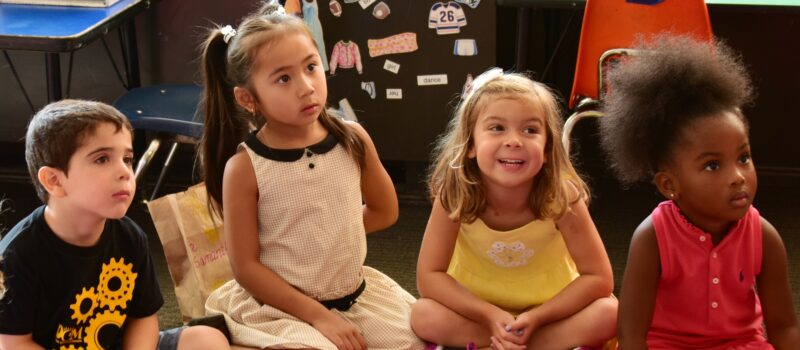A child’s future is shaped by the innumerable decisions made during their journey through parenthood. Every decision you make affects their development, fulfillment, and success from the minute they are born. Choosing to enroll a child in an early childhood program is one of the biggest decisions parents have to make. How can you be certain that your child is beginning life with the greatest possible foundation? What aspects of this crucial choice should you take into account? Early childhood centers offer a multitude of advantages that provide a strong basis for a child’s lifetime learning and development, as both research and personal experience demonstrate. However, what are these advantages specifically, and how may they affect your child’s future? To clear up all these doubts, you can go through SIEGEL JCC. They have one of the most popular early childhood centers in Delaware. This guide will explore the benefits of early childhood centers.
Structured Learning Environment
The organized atmosphere that early childhood centers offer is conducive to children’s development. A sense of stability and predictability is fostered in youngsters by regular routines and timetables. Learning in a variety of areas, such as cognitive, social, emotional, and physical development, is supported by well-designed activities. For young children, this framework is essential because it helps them learn self-discipline, deadline management, and expectations.
Socialization and peer interaction
The chance for kids to interact with classmates is one of the biggest advantages of early childhood programs. Children learn vital social skills like sharing, cooperation, and empathy through interacting with other kids. Children’s emotional well-being also benefits from these interactions since they foster friendships and the development of communication skills. Early development centers foster inclusion and respect for others by exposing kids to a varied range of cultures and viewpoints.
Parental Support and Community Engagement
These childhood centers frequently act as a network of support for parents, providing them with tools, training sessions, and chances to get involved in their child’s education. Joining a group of parents who have gone through similar things can be quite beneficial, as it can offer camaraderie, support, and guidance. In addition, centers help parents and teachers build strong bonds, which guarantees that parents are actively engaged in their child’s educational process.
Cognitive and Language Development
Early childhood is a crucial time for language and cognitive development. Children are introduced to new terminology and concepts through stories, songs, and conversations in the rich language environment that early care institutions provide. Puzzles, games, and practical experiments are examples of activities that foster cognitive development and problem-solving abilities. Early exposure to cognitive and language issues lays the groundwork for later academic success.
Fostering Independence and Self-Confidence
This encourages children to take on new challenges and responsibilities, fostering independence and self-confidence. Children can feel competent and independent when they perform simple activities like getting dressed, cleaning up, or serving food. The resilience and positive self-image that these experiences foster are essential for overcoming social and academic obstacles in the future.
Professional educators and caregivers
These centers employ trained and experienced educators who understand the developmental needs of young children. These professionals use research-based practices to create engaging and age-appropriate learning experiences. Their expertise ensures that children receive individualized attention and supports, helping them reach their full potential. Additionally, educators can identify any developmental delays or challenges early on, allowing for timely intervention and support.
Promoting Physical Development
An essential component of early childhood programming is physical activity. Generally speaking, centers offer lots of chances for physical activity, outdoor play, and the development of fine motor skills through crafts like cutting, painting, and building. Frequent exercise promotes healthy growth and development, coordination, motor abilities, and general physical well-being. It also fosters an early love of an active lifestyle.
Preparation for formal schooling
It provides children with a better foundation for when they enter formal education. Already, they’ve learned to follow rules, adjusted to a disciplined atmosphere, and acquired critical social and intellectual abilities. By easing the transition and increasing the chances of academic achievement, this preparation lessens the worry and tension that come with starting school.
Conclusion
A child’s development may be significantly impacted by the early care center choice, making it a crucial choice. The advantages are numerous, ranging from encouraging independence and physical health to social skills and cognitive growth. Early childhood centers set the stage for a successful and rewarding educational path by offering a caring and stimulating atmosphere. Putting money into your child’s early education is one of the best presents you can offer them as parents since it will set them up for success and lifetime learning.




